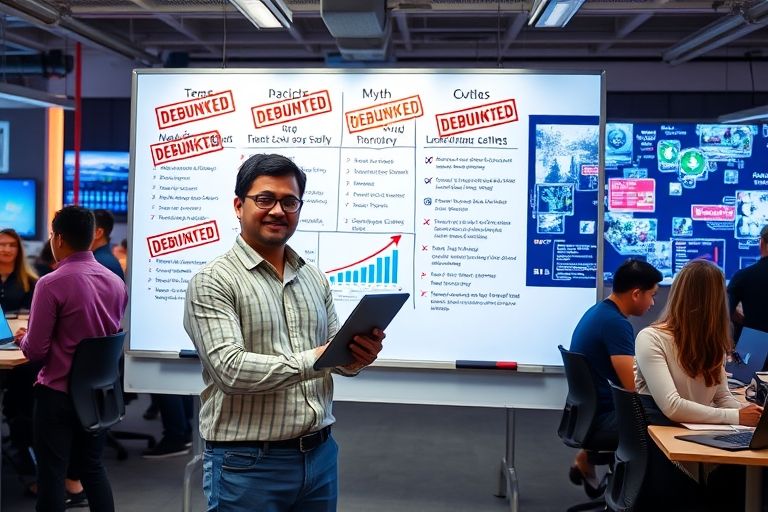
Cybersecurity is a hot topic these days, with many of us relying on the internet for everything from shopping to banking to communicating with loved ones. Unfortunately, with the benefits of the internet come the risks of cybercrime and hacking. While many of us may think we're safe from cyberattacks, there are several common myths that have been debunked by experts in the field.
While it's true that larger companies may be more attractive targets for hackers, smaller businesses and individuals are just as vulnerable. In fact, according to the 2020 Cyber Threatscape Report by Accenture, 43% of all cyberattacks target small businesses.
How to protect yourself: It's important to invest in cybersecurity measures, such as firewalls and antivirus software, even if you're a small business or individual. Regularly backing up your data and educating yourself and your employees on safe browsing habits can also go a long way in protecting yourself from cyberattacks.
While it's true that Macs are generally less susceptible to viruses than PCs, they are not immune. In fact, Mac malware attacks increased by 400% in 2019, according to Malwarebytes.
How to protect yourself: Just like with PCs, it's important to install antivirus software and keep your operating system and applications up to date. Avoid clicking on suspicious links or downloading software from untrusted sources.
While having a strong password is important, it's not enough to fully protect your accounts from hackers. Many cyberattacks involve phishing scams, where hackers trick you into giving them your login credentials.
How to protect yourself: Enable two-factor authentication whenever possible, which requires a second form of verification in addition to your password. Be wary of suspicious emails or text messages asking for your login information.
Public Wi-Fi networks, such as those found in coffee shops or airports, are often unsecured and can be easily hacked by cybercriminals.
How to protect yourself: Avoid using public Wi-Fi for sensitive activities, such as banking or accessing personal accounts. If you must use public Wi-Fi, use a virtual private network (VPN) to encrypt your internet traffic and protect your data.
Cybersecurity is not just the responsibility of IT departments - it's everyone's responsibility. Human error, such as falling for phishing scams or using weak passwords, is a major contributor to cyberattacks.
How to protect yourself: Educate yourself and your employees on safe browsing habits and best practices for cybersecurity. Regularly review and update your security policies and procedures.
By debunking these common cybersecurity hacking myths, we can better protect ourselves and our businesses from cyberattacks. It's important to stay informed and take proactive measures to safeguard our online data and identities.